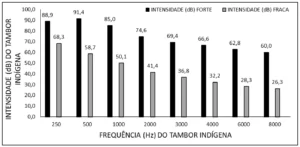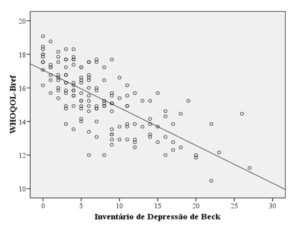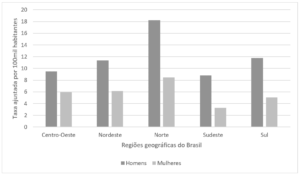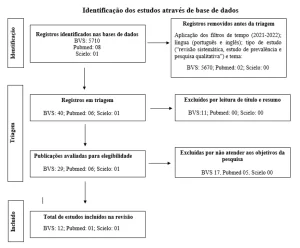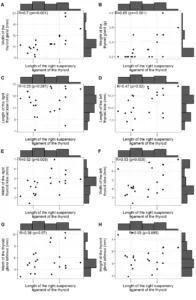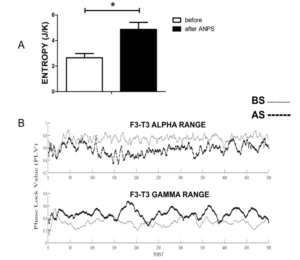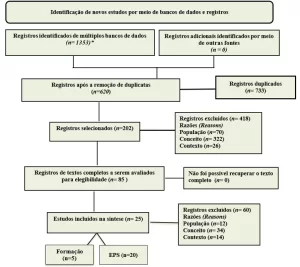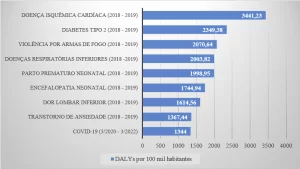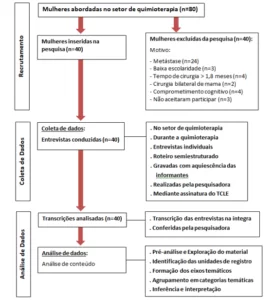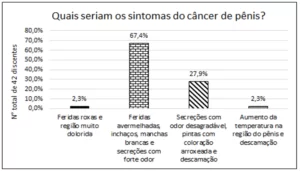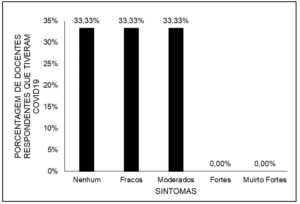CAMARGO, Thaís Vieira [1]
CAMARGO, Thaís Vieira. Pharmaceutical activities in psychosocial care Center: adult (CAPS). Multidisciplinary Core Scientific knowledge magazine, year 1, vol. 7. p. 16-23. ISSN:0959-2448
SUMMARY
The present study aims to discuss the pharmaceutical care in mental health services, promoting the rational use of medicines and the well being of these patients with mental disorders. The pharmaceutical care and humanisation facilitates insertion of therapeutic project on institution building and monitoring their activities. Concretely the therapeutic relationship between the professional and the patient does need Specifies to pharmaceutical care, which bills itself as an act of care in completeness, with the vision of biopsychosocial reduce the pathological state. In this clinical practice the pharmacist has been inserted in the health services.
KEY WORDS: Mental Disorders. Humanization. Biopsychosocial.
INTRODUCTION
After the brazilian psychiatric reform hospitalocentrico model was replaced by a model asylum, which replaced a network of services in the territories with the direction for the psychosocial care of the community. With this expansion of Day-care centres (CAPS) assume the importance on mental health of the country, reversing so the hospitalocentrico model.
Day-care centres were intended to perform a support for patients with mental disorders, with the basement not only at the clinic, but on the understanding of the situation in which they are involved, performing interventions for to ensure their reintegration into their family and society. Performing so the completeness, fairness of this forgotten population for many years in the old asylums in the country.
Over many years the pharmacist comes exercising various functions Besides selling medicines in drugstores and compounding pharmacies, many professionals engaged in various public health services to pharmaceutical care and pharmaceutical assistance.
According to the World Health Organization (who), pharmaceutical care and Pharmaceutical assistance have points in common. According to the National Medicines Policy (PNM), we can set them as “group of activities related to the drug, designed to support health actions demanded by a community”.
The present work aims to discuss the pharmaceutical care in mental health services, with the rational use of medicines and to promote the health and well-being of these individuals with mental disorders.
With municipal public services interaction, this study becomes of great importance to create some parameters for the pharmacist, the multidisciplinary team and some sectors that promote actions with specific objectives and services which are related to psychiatric medications used for these individuals.
In the specialized services of the municipality of São Paulo, the CAPS have pharmaceutical professionals who perform actions with individual patient care and in conjunction with family.
The pharmaceutical care in these services involve also the humanization, facilitating therapeutic project in the institution, with the construction and the monitoring of these activities and their individuality.
DAY-CARE-CENTER CAPS
The Centers for Psychosocial Care (CAPS) are institutions designated to receive patients with mental disorders by stimulating their social and family integration, supporting in its initiatives for the pursuit of autonomy, offering medical and psychological. Has main feature the pursuit of integration to a concrete social and cultural environment, assigning as its territory, the area of the city where develops its everyday life, and family members. The CAPS are the main strategy for the psychiatric reform process.
With the psychiatric reform, which happened between 1978 to 1991, we were mostly in the 1960 that the model used was the old psychiatric asylums. The treatment for patients with mental disorders was made the deposit of these by their families, and so forgotten for several decades.
The psychiatric reform changed the paradigms of many Brazilian institutions, establishing the unified Health Service (SUS) a new model of care to these patients, which would be the centers of psychosocial care (CAPS).
The purpose of CAPS is to support patients with mental disorders, performing not only clinical treatments, but also the promotion of interventions that make “the reinsertion of these patients in social and family context“. With this, propose to undertake “actions of comprehensiveness attention and assistance humanization” promoting conditions for healthy relationships exist between the multidisciplinary team and the patient with mental disorder in order to perform a unique therapeutic project (PTS) according to the needs of each patient and their family situation.
The CAPS is formed by a team containing specialized professionals, in which the pharmacist is inserted in this team promoting in addition to the distribution of medicines, the strict control of the prescriptions, the medical requirements for this individual has in this specialized pharmaceutical attention service.
PHARMACEUTICAL CARE IN THE UNIFIED HEALTH SYSTEM (SUS)
“Pharmaceutical care is a concept of professional practice in which the patient is the primary beneficiary of the actions of the pharmacist. Attention is the compendium of the attitudes, behaviours, the commitments, the anxieties, of ethical values, functions, knowledge, responsibilities and skills of pharmacists in the provision of Pharmacotherapy, in order to achieve therapeutic results defined in health and quality of life of the patient. ” (ANVISA).
When we present the actual importance of pharmaceutical care seek to create parameters for the pharmacist to perform this practice with these patients with mental disorders. According to their own national health surveillance Agency, the pharmaceutical care seeks to hold attitudes and commitments with their patients, performing an appropriate pharmacotherapy to pathology, which makes these become dependent on an efficient therapy.
On pharmaceutical management in public health services there are two divisions as:
- Pharmaceutical assistance, in which we carry out the dispensation of medicines for the municipal public service users use in their homes;
- Pharmaceutical-hospital assistance being carried out the dispensation to patients in internal sectors of the hospitals and all existing clinics at the service.
These two forms of assistance are seeking to conduct a pharmaceutical assistance that is more related to ambulatory the State Department of health and hospital pharmaceutical assistance this linked with the State and municipal departments.
From the moment we seek to relate the philosophy of pharmaceutical care include several elements. First with a social need and continues with a patient-centred approach to satisfy the need, that the central element is another person’s assistance through the development and maintenance of a therapeutic relationship and ends with a description of the specific professional responsibilities (MOREIRA, 2003).
In its pharmaceutical function seeks to satisfy a real need to meet patients individually. Many philosophical premises of pharmaceutical care point out that pharmaceutical assistance responsible and contributes to that society has a pharmacological treatment effective with quality and safety. (MATTHEWS, 2003).
Efficiently the need of this society professional pharmaceutical search relevant actions and focus on the patient will require a specific farmacoterápico and behold study mental disorders and their comorbidity highlighted in his clinical practice in this specialized service (MOREIRA, 2003).
On pharmaceutical care in planning between the patient and the pharmacist, and so ensures the patient commitment, skill and competence required to promote this action. Thus establishes a bond, which makes the maintenance of the therapeutic relationship, identifying the primary functions and responsibilities of each when you have an active participation. When you work with problems related to drug therapy, the real ways and powers of which the drug is manifested along the pharmacokinetic and pharmacodynamic in the body process.
In a concrete way the therapeutic relationship between the professional and the patient makes the need Specifies to meet the patient’s healthcare. Presents itself then an act of caution on completeness and biopsychosocial not just in sight to reduce the pathological state.
The pharmaceutical care seeks to solve an important social problem of mortality related to the use of medicines, employing a patient-centred care and a professional responsibility. The pharmacist is responsible for the actual need, safety and effectiveness of the patient’s pharmacotherapy. This is achieved through the identification, prevention and resolution of problems related to drugs. The problem with drugs is of public health linked to pharmacotherapy that interferes in the results and the quality of life of the user.
To provide pharmaceutical care professional responsible to ensure the patient can meet the farmacoterápicos schemes prescribed by doctors and at the same time follow the care plan, including a good way to achieve good results.
ROLE OF THE PHARMACIST IN CAPS ON MENTAL HEALTH
The pharmaceutical service in health units in São Paulo comes every year being more valued because the professionals seeking an improvement to be of good quality, though many years as a pharmacist, demonstrates that the pharmaceutical care performed with a population extremely needy and care information.
In the pharmaceutical profession there are some paradigms, the function of the professional pharmacist is related with the dispensation of industrialized medicines and masterful. Over the years the professional pharmacist managed to act in various areas, transforming the knowledge acquired.
Today the practice of pharmacist is even more diverse, because after some approvals carried out under pharmaceutical, makes it to Act also in multiprofessional teams that has been adopted in many health services.
The reference work on the CAPS, organized through professional or reference teams, whose operation is based on joint and collaborative construction of therapeutic project. In addition to the members who constitute the traditional therapy team, you can count on the presence of other professionals, among them the pharmacist.
Specifically in CAPS, the professional has been developing many actions pertaining to pharmaceutical care, with regard to medicines. (ZANELLA, 2015)
The medicines are powerful tools to lessen the suffering of these patients with mental disorders.
According to the who, the medicine is “any product used to modify or investigate physiological or pathological States, systems for the benefit of the person who uses”, producing cures and prolonging life slowing the emergence of several complications associated with the disease, thus facilitating the conviviality between the individual and his illness.
However, many factors are related to the process of use of medicines that are reflected in the desired therapeutic effect. In this way, it is important to instruct the patient on the use of psychotropic drugs, identifying potential barriers that may compromise the success of the treatment.
In practice assistance developed, can detach the pharmaceutical dispensing service, which configures only the occasion in that particular recipe or prescription is not being delivered as well as exchange of goods by prescription. (ZANELLA, 2015)
The more important that the medication received by the patient if transfora in educational information about the therapy involved in this process. The flow of this information and previously started in medical consultation and continues at the pharmacy.
During dispensing, the pharmacist should inform and guide the patient about the proper use of medicines, with emphasis on compliance with Pharmacotherapy, interaction with other medications, foods and laboratory tests, knowledge of potential adverse reactions and their storage conditions the medicine. (ZANELLA, 2015)
This informative and educational function of dispensing becomes key piece in the chain of pharmaceutical care, especially in the context of mental health. The pharmacist professional insertion in the context of the CAPS and their actions and interventions aimed at the rational use of drugs, especially psychotropic drugs.
According to the Ordinance SVS/MS No. 344, of 12 May 1998, “the pharmacist is the professional responsible for the dispensation of controlled drugs, which should occur with your authorization, after the evaluation of prescription and prescription notification”.
There is a need for actions that facilitate the continuous improvement of the pharmacist, performing thus the understanding of their role by the multidisciplinary team for this professional is able to practice devoted to patients with mental disorders.
CONCLUSIONS
With this study it was found that the pharmacist be closer to the clinic before a specialist service as the CAPS, because these patients with mental disorders seek these services not only the relief of symptoms, but rather a form of socialization in society that keeps him from live and at the same time to return to the bosom of his family as people capable of living.
These people with mental disorders over many years have sought help, but have always been placed enclosed in hospitals and asylums, we know there is a lot of pain, disappointment and indifference so that they have the minimum dignity.
To relate to the practice of pharmaceutical care makes this practice provides the long-dreamed clinic drugstore that in some countries the pharmacist performs and is highly valued.
BIBLIOGRAPHICAL REFERENCES
-Alison light, Andrew of, and. Osvaldo de Freitas. “Conceptions of the professional pharmacist about pharmaceutical assistance in basic health unit: difficulties and elements for change.” Braz Journal Pharm Sciences 42.1 (2006): 137-146.
-Daniele Ferrazza Daniel, ET al. “The trivialization of prescribing psychiatric drugs in an outpatient mental health.” Paideia (Ribeirão Preto) (2010): 381-390.
-Giovanella, Lígia, ET al. Policies and health system in Brazil. SciELO-Editora FIOCRUZ, 2012.
-Mângia, Elisabete Ferreira, and Selma Lancman. “Nuclei of support to family health: completeness and multi-professional team work.” Journal of occupational therapy, University of São Paulo 19.2 (2008).
-Mendes, Eugene Vilaça. “The Organization of health at the local level.” In health debate. Vol. 117. Hucitec, 1998.
-Kings, Adriano Max Matthews. “Pharmaceutical care and promotion of the rational use of medicines.” 4.2 health space (2003): 1-17.
-Ribeiro, Paulo Rennes Marçal. Mental health in Brazil. Art & science, 1999.
-Vieira FS. Pharmaceutical assistance in the public health system in Brazil. Rev Panam Salude Publica. 2010; 27 (2): 149-56.
Bravo, Maria Inês Souza. “Health policy in Brazil.” Social Service and health: training and professional work (2006).
-Mestriner, Darlene Caprari Pires. The pharmacist in the public health service: the experience of the municipality of Ribeirao Preto-SP. Diss. University of São Paulo, 2003.
-Geeta, m. c., et al. “The pharmacist in the context of the family health strategy, that reality is this?” 7.2 Academic vision (2006).
-Zanella, Carolina Garcia, Patricia Manuel Aguiar, and. Silvia Storpirtis. “Role of the pharmacist in dispensing medicines in Adult Day-care centers in the city of São Paulo, Brazil.” Rev. Cienc. Health Col. 20.2 (2015): 325-32.
[1] Pharmaceutical, a researcher at the Methodist College of Piracicaba.
